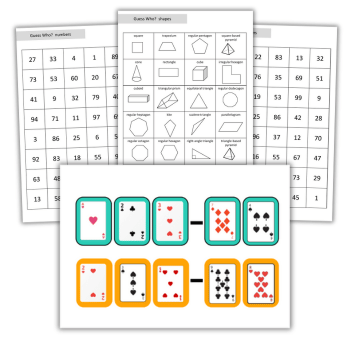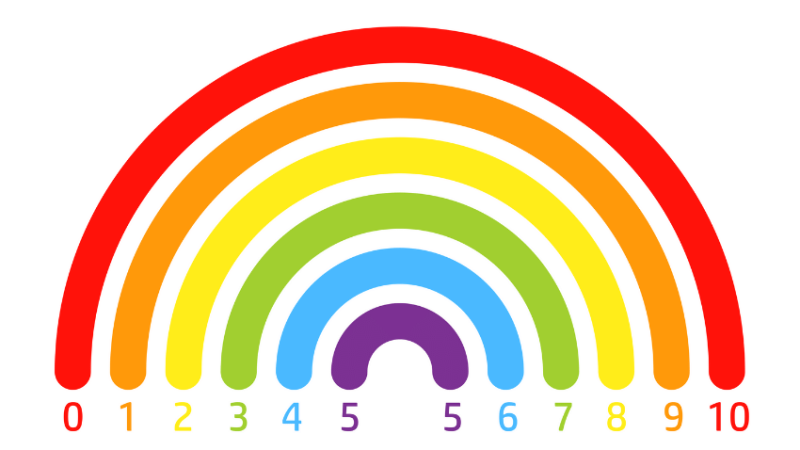Climate change lesson – how maths plays an important part

Teachers take on an important role in helping pupils understand the crisis

Sometimes it can be difficult to know where to start with a huge topic like the climate crisis, but maths is a powerful tool in understanding the information we receive, and teachers can play an important role in positive change.
In a number of her speeches, Greta Thunberg makes it clear that climate change should be spoken about everywhere and often with the kind of gravitas that the Earth’s predicament warrants.
She marvels in her speech entitled ‘Almost Everything is Black and White’ (2018) that “the vast majority [of people don’t] have a clue about the consequences of our everyday life”.
Indeed, the School Education Gateway survey on Climate Education found that only four per cent of students felt that they knew a lot about climate change. This is something that teachers are well-equipped to change.
How to teach climate change
Understandably, many teachers feel that the onus is being placed upon them to teach about climate change without the proper guidance or training to talk on a topic they believe to be controversial and at the expense of prioritising core skills and examination subjects.
However, in the report Unleashing the Creativity of Teachers and Students to Combat Climate Change, the Brookings Institute remains optimistic that the creativity of teachers can help solve crises, build civic society, and establish a green learning agenda.
And teachers are not alone in the process. There are growing calls to integrate climate change across the curriculum by organisations like Earth Day and The World’s Largest Lesson.
Academics are working to create resources to place climate change at the centre of teaching. And while teaching on this issue is usually in the realm of geographers and scientists, the Department for Education (DfE) promised at COP26 to place the topic at the heart of education as a priority for all departments.
Why is maths important?
So why is maths, specifically, important in fighting climate change? Well, without numbers, students would not understand ideas like the carbon budget or the limit of 1.5 degrees of warming at the centre of climate change debates.
And, without using data to think abstractly, our senses and observations alone would not confirm that climate change is occurring or that we need to act.
Climate change is also a statistical phenomenon that is understood by mapping changes in average measurements (of temperature, sea level or snow fall, for example) over time and analysing variance to provide convincing evidence of a change in the global environment.
Trending
We must use different mathematical processes to procure these measurements and help build models to predict what is likely to happen in the future.
Decision-makers and the public alike need a grounding in maths to understand this kind of information, for example through mathematical diagrams.
Citizens must a be able to determine how to be critical of data to align their behaviour with data they trust, too, and pass-over data presented with an agenda.
What can schools do to reduce climate change?
How does maths combine with active citizenship skills to change the world? Well, governments listen to numbers! In societies that are numerate, mathematical evidence is a convincing way of prompting action and everyone needs to develop skills in effective problem solving that will help them to create local and scalable solutions to climate change.
As well as teaching students to handle numbers, education has the capacity to inspire, engage and empower. Numerous studies have shown that climate change education has the biggest impact when pupils are encouraged to take responsibility for learning about issues that impact them and their communities.
For example, older children might meaningfully analyse data relating to snow in their local area; learners responsible for growing plants on a patch of land become invested in the survival of vegetation, and installing a solar-powered water system to tackle the impact of drought on Runesu Primary School in Zimbabwe encouraged increased climate activism.
COP26 lesson ideas
In an area with especially high or low rainfall, why not elevate maths skills by collecting and recording how many millimetres of liquid are captured daily and discussing how to make the records useful, fair, and impactful in the future?
Discussing climate change, celebrating World Environment Day, having visitors speak about climate change, initiating projects for children to improve the sustainability of their own school (for example, by reducing food waste), or starting clubs to save the environment will have a profound impact on the future of the planet and can be used to cultivate ever-important mathematical knowledge and skills.
Fiona Goddard is a senior education consultant at Whizz Education. Learn more about Whizz Education’s collaborative summer project with PiXL: Building for a Greener Future.











